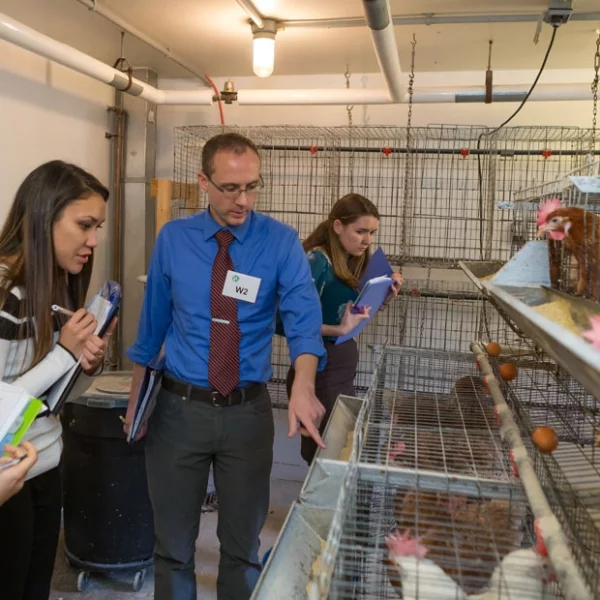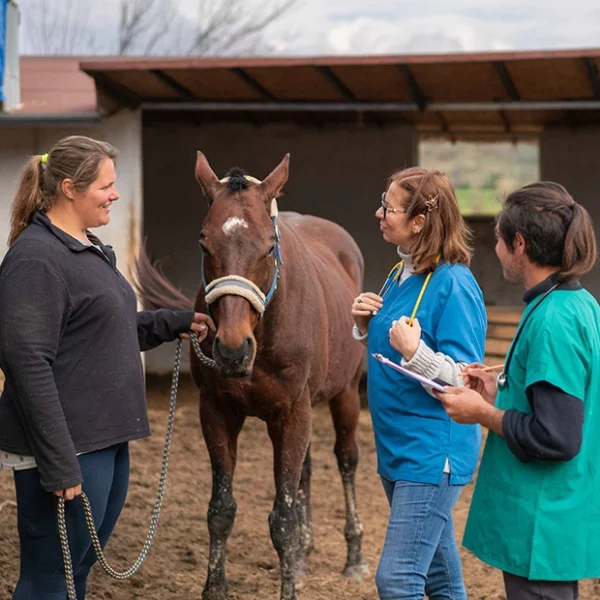Answering clients’ questions about CIRDC
Cases of canine infectious respiratory disease complex (CIRDC) in multiple states have been catching much media attention lately. Efforts are underway to identify one or more pathogens that may be responsible.
Meanwhile, dog owners understandably have questions, and veterinary teams need trustworthy answers. Here’s information that your veterinary team can share with clients to help address their concerns.
- Outbreaks of CIRDC occur regularly, and the recent outbreak isn’t cause for alarm.
- Several different bacteria and viruses can contribute to CIRDC, and we don’t yet know which one(s) are causing the outbreak. While we can’t rule out the possibility that a new organism may be responsible for the outbreak, current disease patterns aren’t consistent with the emergence of a new, easily transmitted pathogen.
- Most dogs with CIRDC will have only mild illness, recovering fully within 7 to 10 days. The classic sign is a frequent, honking cough that comes on suddenly, but some dogs may have sneezing and/or a runny nose or eyes.
- Typically, only a small percentage of dogs will develop more severe disease, depending on the infecting organism(s) and the dog’s ability to fight it.
- Signs that your dog needs immediate veterinary care include the following:
-
Lingering cough
-
Weakness
-
Loss of appetite
-
Difficulty breathing
-
Worsening of illness
-
A cough so severe that your dog vomits or has trouble breathing
-
-
These factors increase a dog’s risk of becoming ill:
-
Short-nose breed, like French Bulldogs
-
Very young or old age
-
Compromised immune system
-
Pre-existing respiratory disease or heart disease
-
-
The best way to protect your dog against CIRDC is to keep their vaccines current. Vaccines not only reduce the chance of your dog becoming ill. They also make your dog less likely to develop severe disease or spread infection to other dogs.
-
Optimal protection against common respiratory infections includes an annual intranasal vaccine against Bordetella, canine adenovirus type 2, and canine parainfluenza. Where canine influenza is known to be circulating, the injectable canine influenza vaccine also is recommended. Your veterinarian can help you decide which vaccines your dog needs to stay as healthy as possible.
-
For further protection against CIRDC:
-
Remember that dogs can be contagious and still look perfectly healthy. To play it safe, limit your dog’s interaction with other dogs—especially large groups of dogs with unknown health or vaccination statuses—and wash your hands after handling other dogs to avoid spreading infection.
-
Keep your dog away from toys and food and water bowls used by dogs outside your household.
-
Stay informed. Follow your veterinarian or the American Veterinary Medical Association (AVMA) on social media, and check news or internet resources to find out about places where CIRDC, or more specific respiratory infections like canine influenza, have been reported. Start with this update from AVMA News: Making sense of the mystery illness found across the U.S.
-
Delay or avoid taking your dog to places where outbreaks are occurring.
-
If your dog is sick, keep them away from other dogs.
-
-
In general, the risk of people getting sick from exposure to dogs with CIRDC is extremely low.
Related resources
The AVMA has online resources you can share with clients to help them understand more about both CIRDC and canine influenza, as well as a downloadable client handout on canine influenza. Find more information on these AVMA webpages:
- Canine infectious respiratory disease complex (Kennel cough)
- Canine influenza in pets
- Canine influenza: Veterinary team resources
Veterinarians also can read more about CIRDC in these peer-reviewed publications:




Comments
CIRD in Shelters
I have been dealing with this as a shelter veterinarian for almost 10 years. I am shocked we haven’t seen it spill over into privately owned dogs until now. Why is the research not starting at the shelter level where this is not new. I personally have treated thousands of these cases and have run hundreds of PCRs over the years as have my colleagues. I know I’m just a shelter vet but I have many thoughts I’d love to share :)
Dr. Elmore, Thank you for…
Dr. Elmore, Thank you for dedicating 10 yrs of your career to working in a shelter. Never underestimate your value to the community and most importantly to the animals. You should contact your state Agriculture Dept. See how they are addressing the stats, treatment and prevention. Your experience and knowledge is extremely valuable. Don't be afraid to reach higher if your state isn't running a good infectious disease control plan.
Deepest gratitude for what you do. It's a VERY hard job.
Dawn Castignoli CVT
CIRD
Erika, you are not “just” a shelter vet! In my opinion, it takes a special person to be any type of vet. The shelter animals are lucky to have you. I praise you for that.
CIRDC
My 11 yr. Old Maltese/Bichon dog has had this respiratory problem since Sept. 11/2023 and today it’s Dec. 26/2023. Nothing is working, after 3 different antibiotics, many many shots, x-rays showing nothing, internal probe, months with 2 different veterinarians and nothing is working. I am exhausted, my dog is exhausted constantly coughing, gagging trying to get something out that never comes out! Is there anything out there that can help these poor dogs who are suffering? Please help.
Help everyone to cure please study
Please study holistic shark cartilage. It has performed miracles for me and my dogs, horses and now cats.
It works in under 30 days for tumors and I had COVID, took this as first night horrible chest pains and then took the capsules (2 in the morning and 2 at night). Then no COVID symptoms again ever.
Also, with X-ray proof my dog had complete cancer in lungs. Veterinarian stated euthanasia is eminent. Took him home, used shark cartilage pills and in under 30 days his x-ray was clear.
I don't know how to get Veterinarians to test this to help people who love their animals like I do, so I am appealing to this organization to please try testing.
You print every article that states no one knows what to do.
I have more proof to share if interested.
CIRDC
Can CIRDC be mistaken for asthma?
Add New Comment